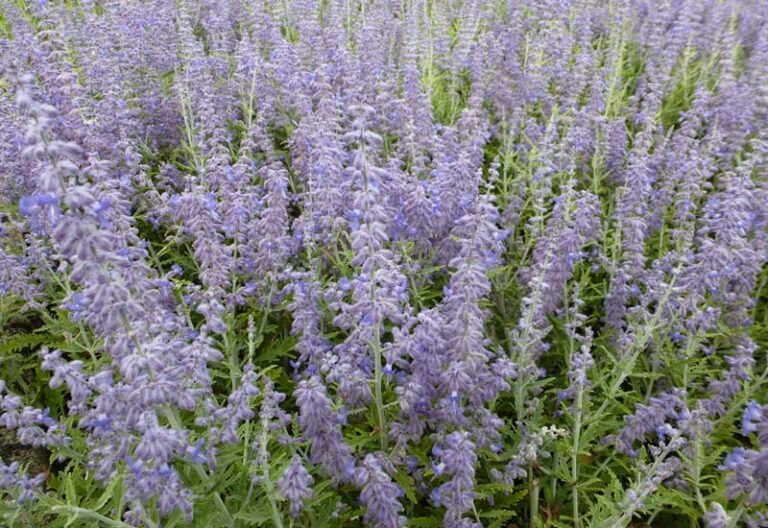
PEROVSKIA 'LACEY BLUE' (LISSLITT) Guido Van de Steen
British bred Perovskia 'Lacey Blue' has a neat, compact habit making it well suited to containers as well as borders, where it is particularly effective when planted en masse. Like all Perovskia, this cultivar is tough and resilient, tolerating coastal winds and dry, chalky conditions. Height: 50cm (20"). Spread: 60cm (24").

Perovskia atriplicifolia 'Lacey Blue' ('Lisslitt'PBR) EU 27550 Gebr. Alkemade BV
Perovskia Lacey Blue. sage [Lacey Blue] A compact, deciduous sub-shrub to 50cm, with silvery stems bearing aromatic, grey-green leaves. Branched spikes of relatively large, purple-blue flowers are produced in late summer and autumn. Other common names Russian sage [Lacey Blue] Synonyms
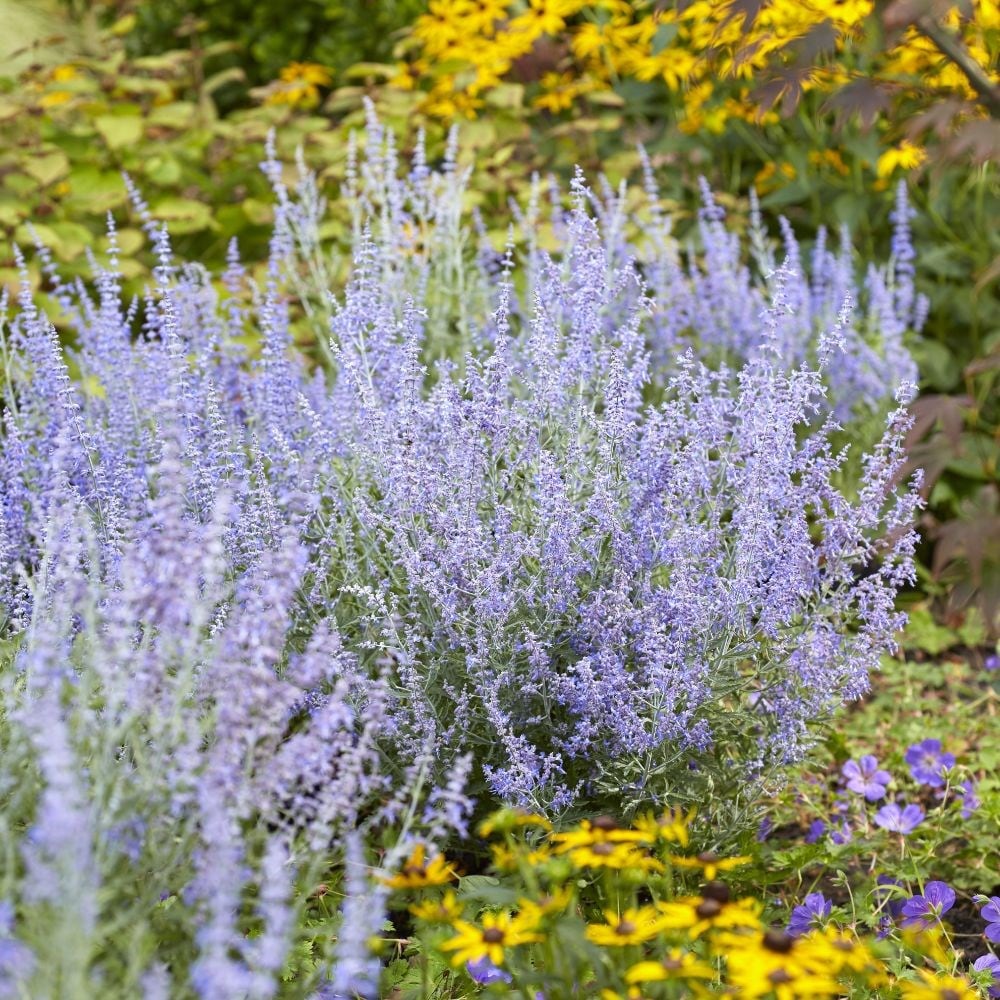
Buy Russian sage Perovskia Lacey Blue ('Lisslitt') (PBR) £14.39 Delivery by Crocus
Buy Russian sage Perovskia Lacey Blue ('Lisslitt') (PBR) - A compact silvery-leaved, blue flowering deciduous shrub: 2 litre pot: £17.99 Delivery by Crocus
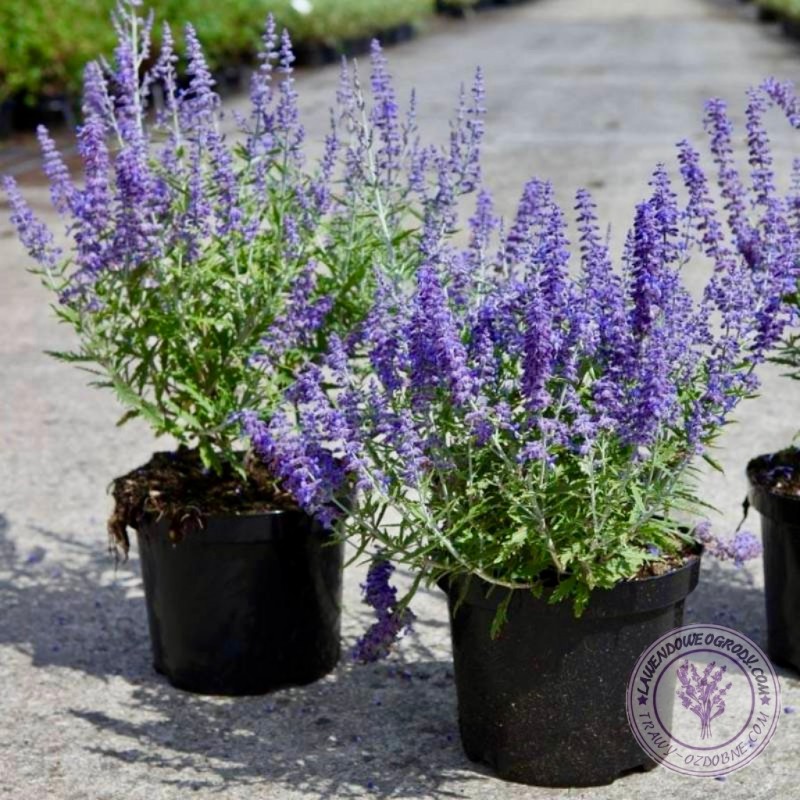
Perovskia atriplicifolia Lace Blue
Come and check at a surprisingly low price, you'd never want to miss it. Awesome & High Quality Here On Temu. New Users Enjoy Free Shipping & Free Return.
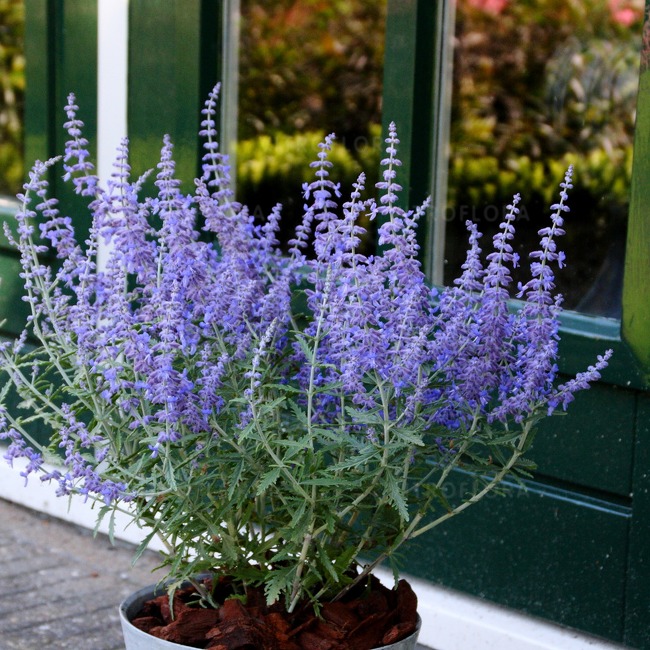
Perowskia Perovskia atriplicifolia Lacey Blue Sklep Zielona Pokusa
Perovskia Lacey Blue(Russian Sage) A medium growing sub-shrub with finely cut silver leaves forming a very attractive mound of scented foliage. Intense blue flower spikes are produced in Summer and are very attractive to bees and insects. A great introduction to a sunny border, prefers a hot and dry area and needs full

Perovskia 'Lacey Blue' 1 Gallon The Garden Corner
Noteworthy Characteristics. Perovskia atriplicifolia, commonly called Russian sage, is a woody-based perennial of the mint family which typically grows 2-4' (less frequently to 5') tall and features finely-dissected, aromatic (when crushed), gray-green leaves on stiff, upright, square stems and whorls of two-lipped, tubular, light blue flowers tiered in branched, terminal panicles (12-15" high).

Perovskia atriplicifolia Lace Blue
British bred Perovskia 'Lacey Blue' has a neat, compact habit making it well suited to containers as well as borders, where it is particularly effective when planted en masse. Like all Perovskia, this cultivar is tough and resilient, tolerating coastal winds and dry, chalky conditions. Height: 50cm (20"). Spread: 60cm (24").

Växtia » Perovskia atriplicifolia ’Lacey Blue’
Perovskia atriplicifolia 'Lacey Blue' is celebrated for its adaptable appearance and effortless growth, making it a versatile choice for various garden styles and locations. Featuring green foliage and delicate pale violet flowers, this plant adds a touch of elegance to any setting. To ensure optimal results season after season, it is.
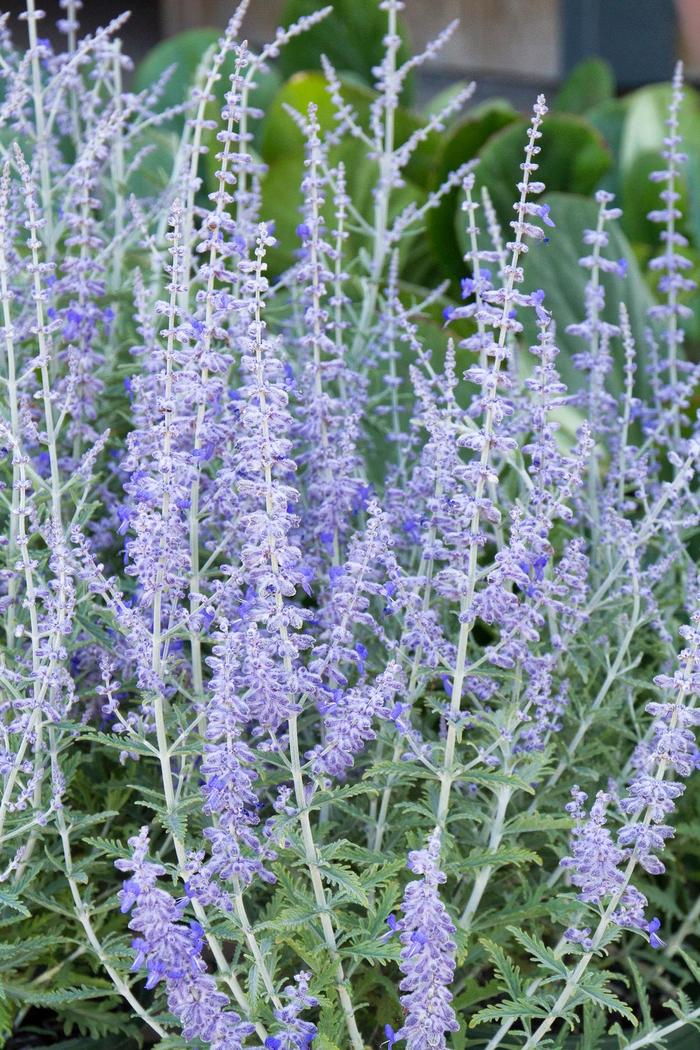
Perovskia atriplicifolia 'Lacey Blue' Russian Sage Ebert's Greenhouse
Perovskia Lacey Blue ('Lisslitt') (PBR) Russian sage. 50% OFF selected 2 litre pot: £17.99 £8.99: 2 litre pot.. its aromatic grey-green leaves offer the perfect backdrop for the purple-blue flowers, which can be used in both fresh and dried cut arrangements. At its best when planted in generous, naturalistic drifts, it mixes beautifully.
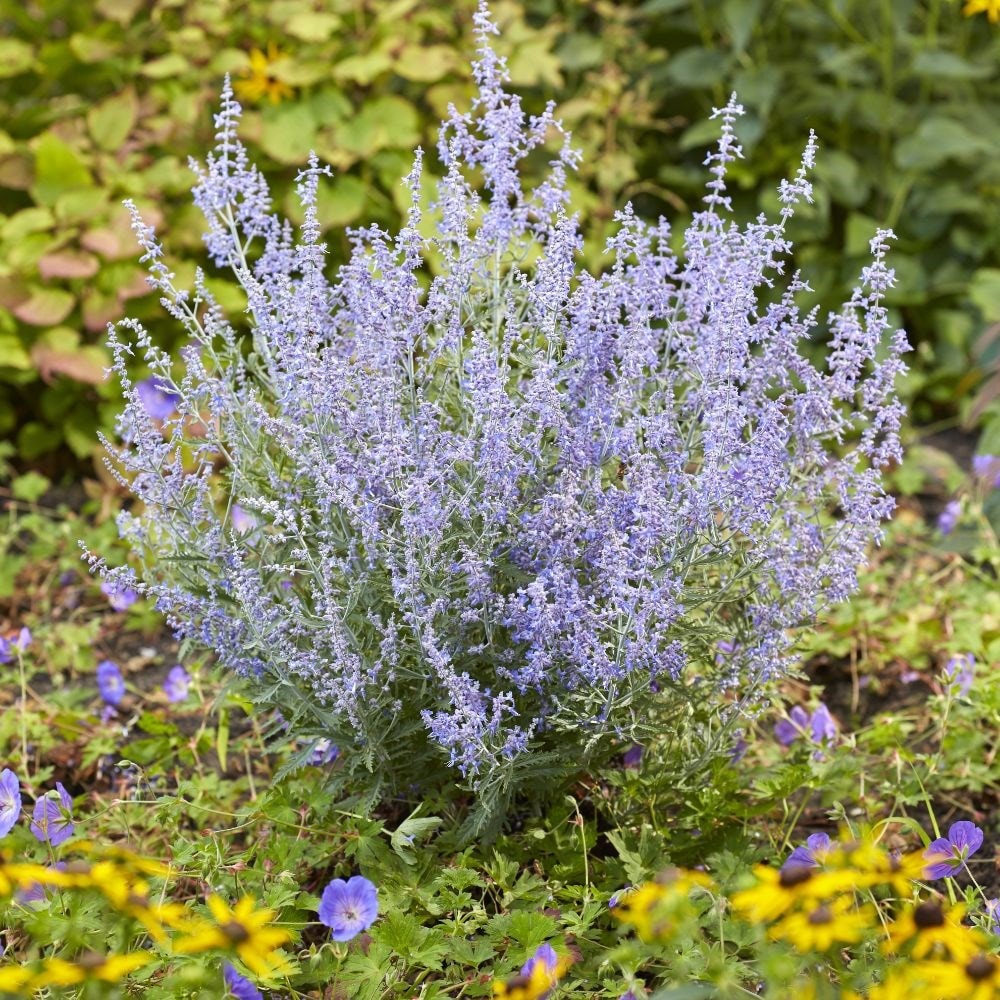
Buy Russian sage Perovskia 'Lacey Blue ('Lisslitt') (PBR)' Delivery by Waitrose Garden
Russian sage, or Perovskia, is a late summer blooming perennial that bursts into flower like a cloud of blue. It goes from a hazy, pale blue to a jubilant azure. The long panicles of flowers become increasingly brilliant as they open. Russian sage is a woody subshrub. Although its branches are woody, like a shrub, the top portion of the plant.

Blauraute Lacey Blue (Lisslitt) ® Perovskia atriplicifolia Lacey Blue (Lisslitt) ® günstig kaufen
Perovskia Lacey Blue - Common name: Russian Sage - Distinguished for its large lavender-blue flowers and compact bushy habit. A long-bloomer, this cutie is small enough to nestle into almost any sunny garden. Spicy-scented silver foliage and blossoms thrive in dry, tough conditions. Perovskia Lacey Blue was bred by Peter Catt of Liss forest Nursery in the UK from a self-pollinated P. Blue Spire.
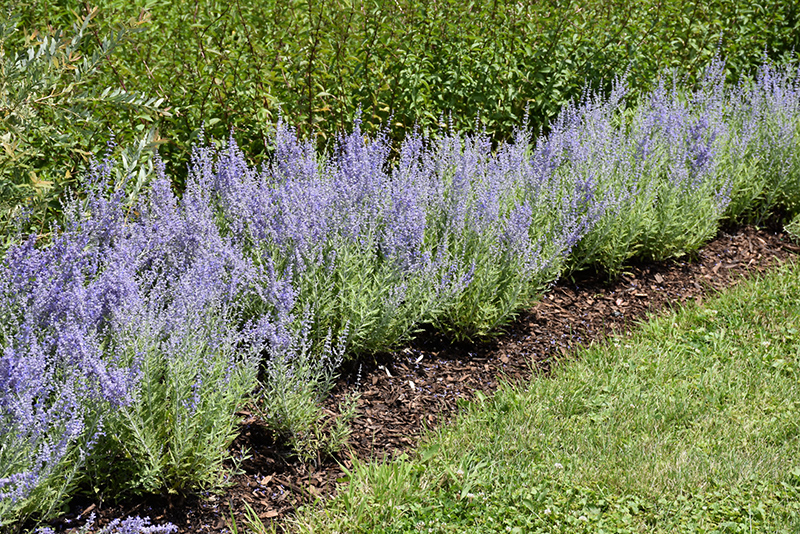
Lacey Blue Russian Sage (Perovskia atriplicifolia 'Lacey Blue') in St Thomas Port Stanley London
How to care for Russian sage. Watering a pot planted with Russian sage, hebe and Japanese anemone. There's very little need to water or feed Russian sage, as it's extremely drought-tolerant and thrives in poor soils. Being related to mint - which is known for its invasiveness - Russian sage can spread beyond the space you have allocated for.
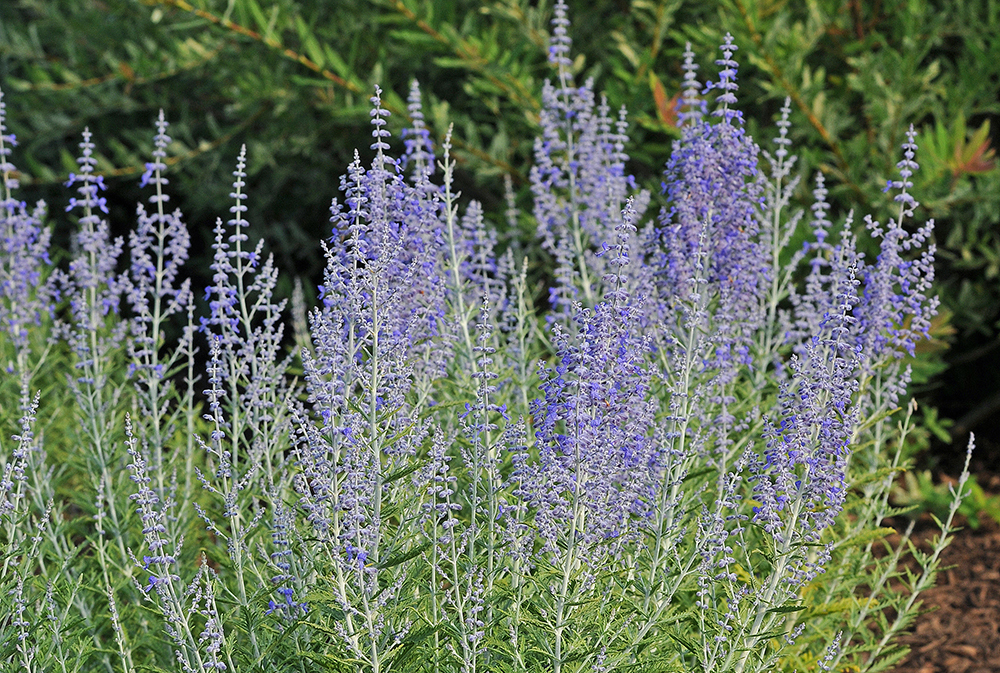
Perovskia Stonehouse Nursery
Salvia yangii, previously known as Perovskia atriplicifolia (/ p ə ˈ r ɒ v s k i ə æ t r ɪ p l ɪ s ɪ ˈ f oʊ l i ə /), and commonly called Russian sage, is a flowering herbaceous perennial plant and subshrub.Although not previously a member of Salvia, the genus widely known as sage, since 2017 it has been included within them. It has an upright habit, typically reaching 0.5-1.2.
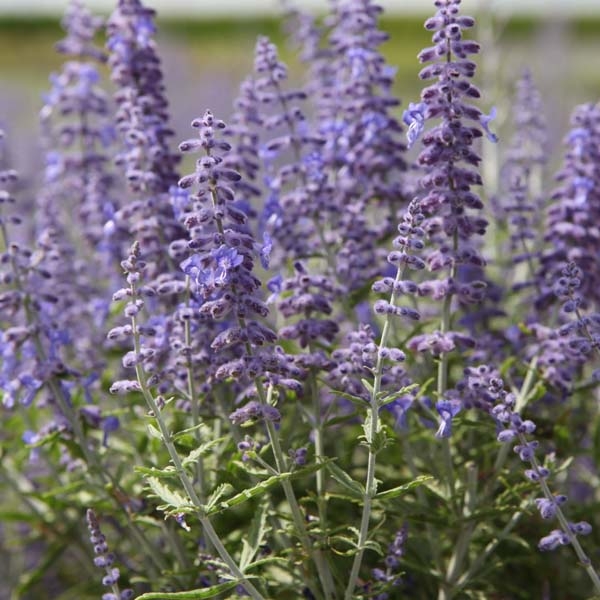
Perovskia atriplicifolia Lacey Blue Sauge d'Afghanistan bleu azur
Russian sage, Perovskia atriplicifolia, is a handsome sub-shrub that reaches its peak performance towards the end of summer and into early autumn, when it produces masses of lavender-coloured flowers held on branching, aromatic stems. Perovskia atriplicifolia is a fantastic addition to a herbaceous border or gravel garden, growing alongside.

Blauraute Lacey Blue® Perovskia atriplicifolia Lacey Blue® günstig kaufen
Perovskia Lacey Blue, also known as Russian Sage. A striking cultivar raised by Peter Catt from Liss Forest Nursery. This compact variety has deeply cut silver foliage which is highly aromatic and from mid-summer through till autumn flower heads bearing many soft deep blue flower heads are produced which hold their colour for longer than many.
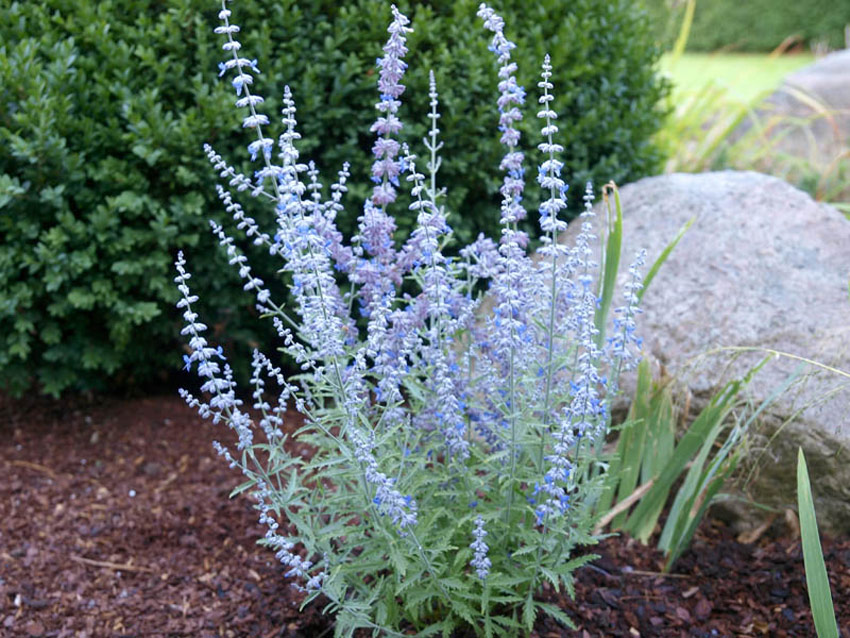
PEROVSKIA atriplicifolia ´Lacey Blue´ (´Lisslitt´)Ⓢ Decidous trees and Shrubs Assortment
Perovskia Lacey Blue (Russian Sage) is a compact, deciduous sub-shrub with silvery stems bearing stiff upright spikes of relatively large, purple-blue flowers. Blooming for weeks from mid-summer to fall, the colorful blossoms attract pollinating bees and hummingbirds. The thin stems are clad with finely dissected, aromatic, gray-green leaves.